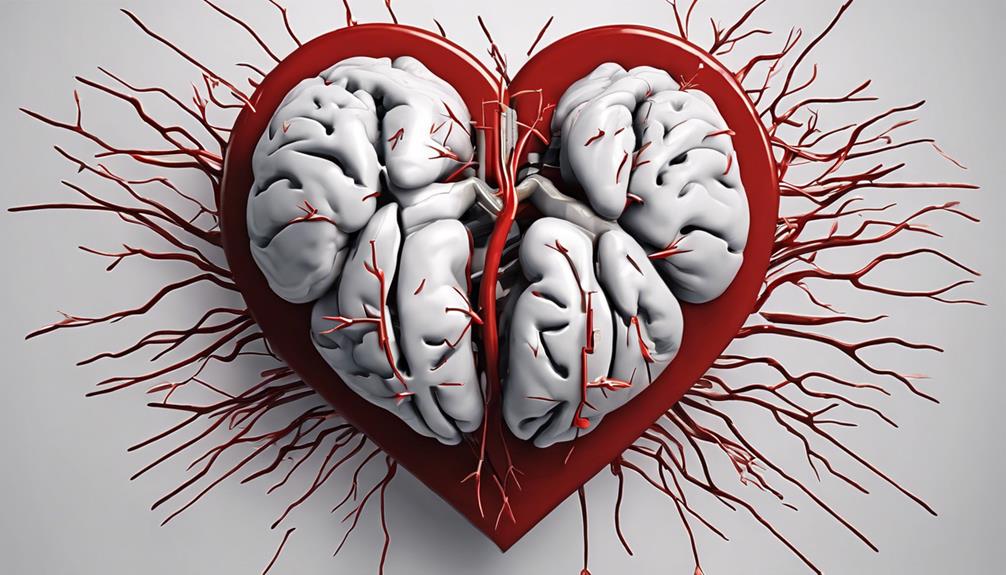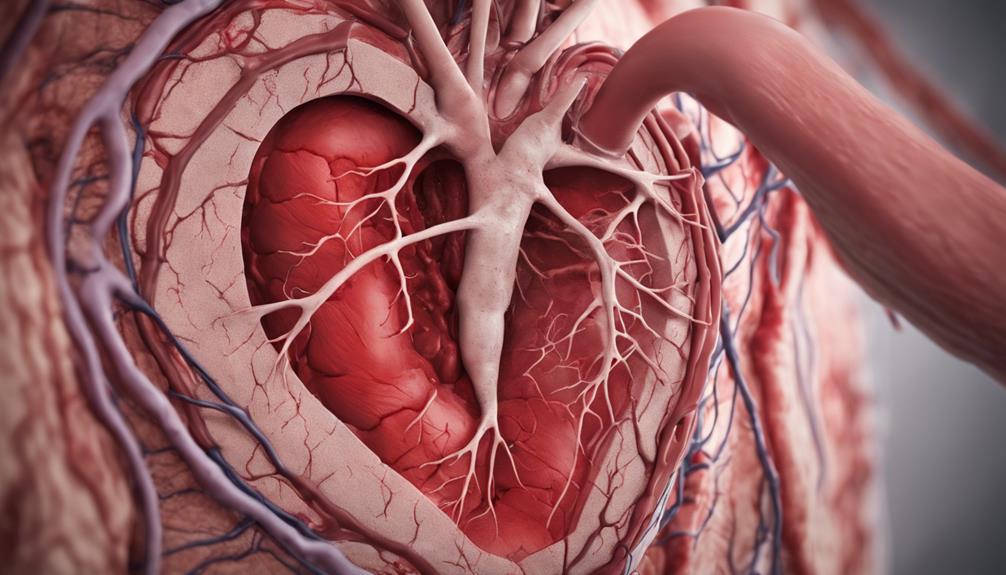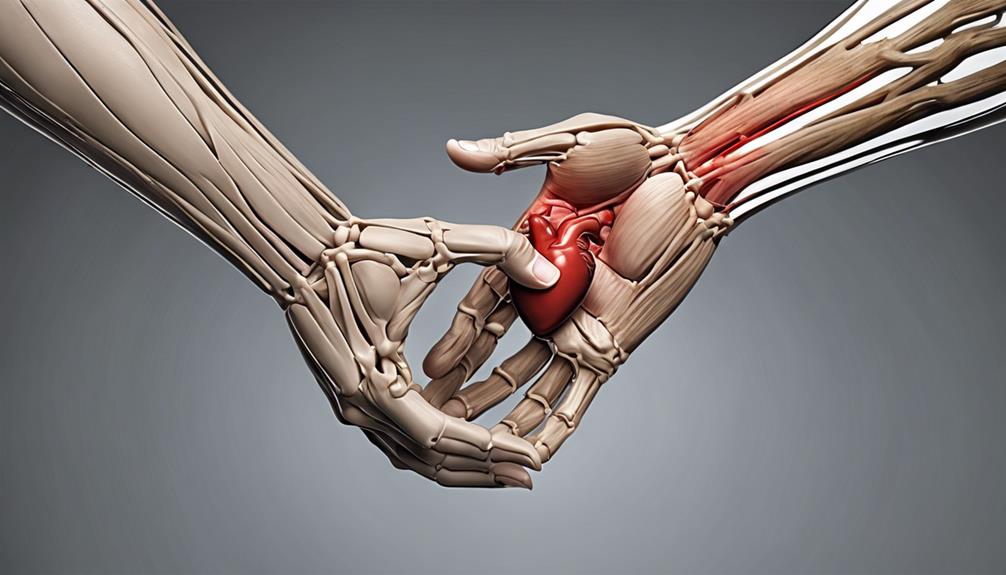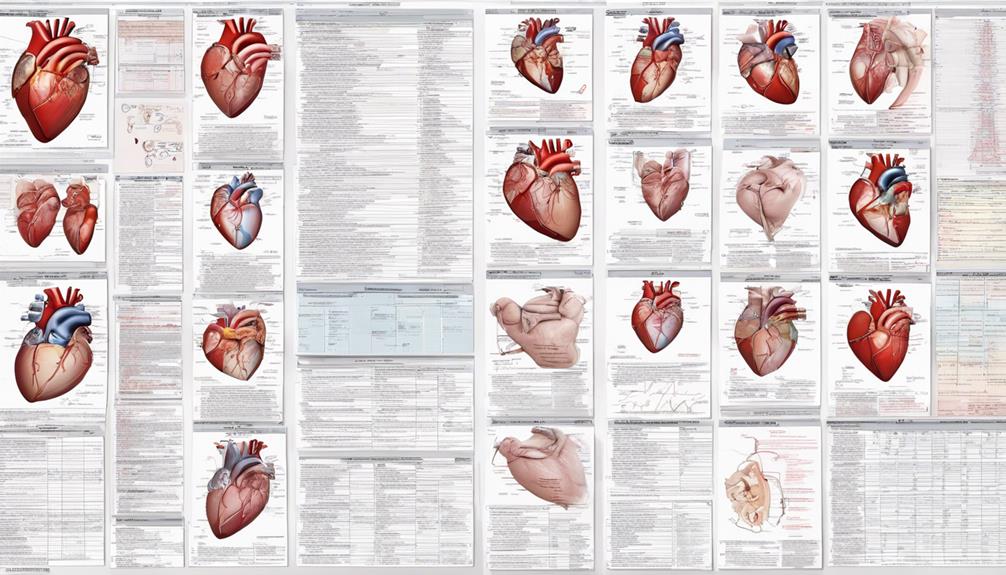When delving into the complex network of cardiovascular health, we discover that hypertension, heart disease, and stroke are interconnected like the intricate threads of a tapestry.
The interplay between these conditions goes far beyond surface symptoms, delving into the intricate mechanisms of our bodies.
Understanding how hypertension influences heart disease and stroke risk is crucial, but what ties them together in a more profound way?
Let's explore the deeper layers of this relationship to uncover the hidden complexities that link these cardiovascular foes in ways we might not expect.
Key Takeaways
- Hypertension increases heart attack risk.
- Lifestyle changes reduce cardiovascular disease risk.
- Lower blood pressure lowers cardiovascular risk.
- Early intervention prevents complications like stroke.
Understanding the Relationship Between Hypertension and Heart Disease
Understanding how hypertension directly impacts the development and progression of heart disease is crucial for comprehending the interconnection between these two cardiovascular conditions. Hypertension, commonly known as high blood pressure, damages arteries, increasing the risk of heart disease by promoting plaque buildup and narrowing blood vessels. This process can lead to heart conditions like coronary artery disease and heart failure.
High blood pressure from hypertension can also cause the heart muscle to thicken, reducing elasticity and potentially leading to various heart issues. Statistics revealing that 7 in 10 first heart attack cases are linked to high blood pressure highlight the significant relationship between hypertension and heart disease.
Furthermore, hypertension disrupts blood flow to the brain, affecting one-third of stroke patients and increasing the risk of stroke. Managing hypertension through lifestyle changes and medications can help lower the risk of heart disease, emphasizing the importance of controlling high blood pressure for heart health.
Impact of Hypertension on Stroke Risk
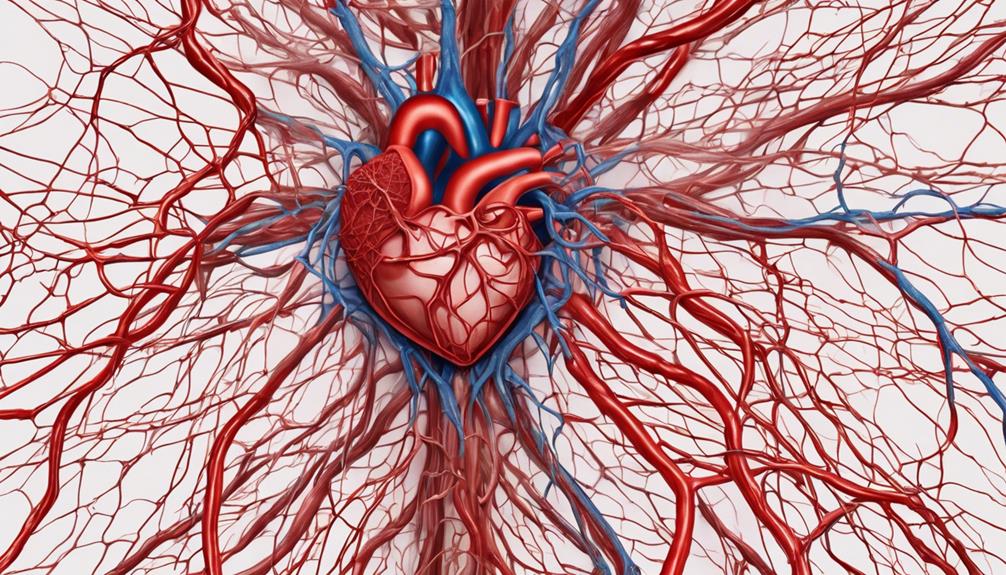
Hypertension significantly elevates the risk of stroke by compromising blood flow to the brain and heart, emphasizing the critical connection between high blood pressure and stroke occurrence. High blood pressure, a hallmark of hypertension, can lead to artery strain and weakening, making individuals more susceptible to strokes. The strain on the arteries caused by hypertension disrupts the smooth flow of blood to vital organs like the brain, increasing the likelihood of a stroke. Heart disease, often associated with hypertension, is present in about one-third of stroke patients, highlighting the intricate relationship between these conditions. Lowering systolic blood pressure by just 10 mm Hg can substantially reduce the risk of heart diseases and strokes. This underscores the importance of managing blood pressure effectively to prevent not only heart complications but also the occurrence of potentially life-altering strokes.
| Artery Strain | Artery Weakening | Disrupted Blood Flow |
|---|---|---|
| Increased risk of stroke | Vulnerability to strokes | Impaired circulation to vital organs |
Shared Risk Factors Among Hypertension, Heart Disease, and Stroke
Among individuals with hypertension, heart disease, and stroke, there's a notable overlap in risk factors such as high blood pressure, which significantly increases the likelihood of developing these interconnected conditions. High blood pressure, a hallmark of hypertension, can lead to the weakening and damage of arteries, paving the way for heart diseases like heart attack and heart failure, as well as raising the risk of stroke.
Statistics reveal that a substantial proportion of first heart attacks and strokes are closely associated with high blood pressure, emphasizing the critical role of this risk factor in these health issues. Hypertension-induced strain on arteries can contribute to the development of stroke and various heart complications.
Fortunately, managing blood pressure through lifestyle modifications such as a heart-healthy diet, regular exercise, and stress reduction, alongside appropriate medical interventions, can effectively lower the risk of hypertension-related heart disease and stroke. Controlling high blood pressure is pivotal in mitigating the onset and progression of these potentially life-threatening conditions.
Importance of Blood Pressure Management
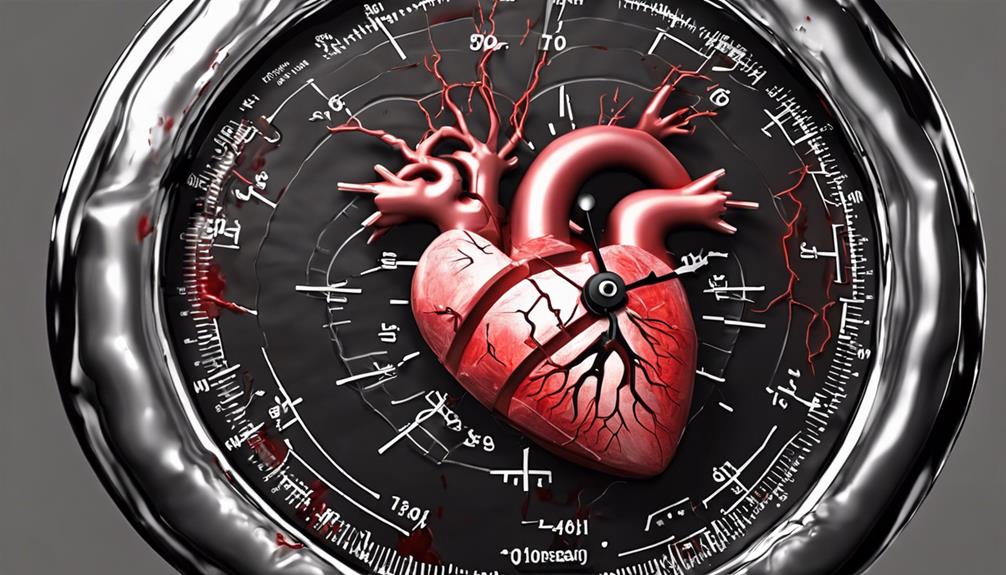
Effective management of blood pressure is critical due to its significant role as a major risk factor for heart disease and stroke. Maintaining optimal blood pressure levels is essential for overall cardiovascular health. Here are three key points highlighting the importance of blood pressure management:
- Risk Factor Reduction: Lowering systolic blood pressure by just 10 mm Hg can lead to a considerable decrease in the risk of cardiovascular diseases, including heart attacks and strokes.
- Lifestyle Modifications: Incorporating lifestyle changes such as adopting a healthy diet, engaging in regular physical activity, and practicing stress management techniques can aid in controlling blood pressure levels effectively.
- Regular Monitoring and Medical Guidance: Monitoring your blood pressure regularly and seeking medical advice for hypertension management are crucial steps in maintaining cardiovascular health. Consulting healthcare professionals can help in developing personalized strategies to manage hypertension and reduce the risk of heart disease and stroke. Prioritizing blood pressure management is vital for preserving overall cardiovascular well-being.
Preventive Strategies Against Hypertension, Heart Disease, and Stroke
To combat the risks of heart disease and stroke, implementing proactive preventive strategies is pivotal in maintaining optimal cardiovascular health. Lifestyle modifications such as following a healthy diet, engaging in regular physical activity, avoiding smoking, and managing stress are crucial in preventing hypertension, heart disease, and stroke. Monitoring blood pressure, cholesterol levels, and overall cardiovascular health regularly can aid in early detection and prevention. Implementing prevention strategies like maintaining a healthy weight, controlling cholesterol levels, engaging in regular exercise, quitting smoking, and following a balanced diet can significantly reduce the risk of developing these conditions. Early detection through home blood pressure monitoring, heart health tests, and recognizing stroke symptoms is vital in preventing the progression of cardiovascular diseases. Factors such as lifestyle choices, genetic predisposition, and age play significant roles in the development of these conditions, highlighting the importance of proactive preventive measures.
| Prevention Strategies | Description | Benefits |
|---|---|---|
| Healthy Weight | Maintaining a healthy weight through balanced nutrition and regular exercise helps reduce the risk of hypertension, heart disease, and stroke. | Reduces strain on the heart and blood vessels. |
| Cholesterol Control | Managing cholesterol levels through diet, exercise, and medication when necessary can prevent the buildup of plaque in the arteries, lowering the risk of cardiovascular diseases. | Prevents atherosclerosis and reduces the risk of heart attacks and strokes. |
| Regular Exercise | Engaging in physical activity regularly improves heart health, lowers blood pressure, and enhances overall cardiovascular fitness. | Strengthens the heart muscle and improves blood circulation. |
| Early Detection | Regular monitoring of blood pressure, cholesterol levels, and cardiovascular health allows for timely intervention and prevention of complications. | Enables prompt treatment and management of risk factors. |
| Home Blood Pressure Monitoring | Checking blood pressure at home regularly helps in early detection of hypertension and enables timely adjustments to treatment plans. | Provides valuable data for healthcare providers and promotes patient involvement in managing their health. |
Frequently Asked Questions
How Is Heart Disease Related to Stroke?
When heart disease is considered in relation to stroke, it's crucial to understand the intricate connection between the two conditions.
The presence of heart disease can significantly elevate the risk of stroke, with a notable portion of stroke patients also exhibiting heart issues.
Damage to the arteries from heart disease can contribute to plaque formation, potentially leading to blockages that serve as triggers for strokes.
This intricate relationship underscores the importance of managing heart health in stroke prevention.
How Are Hypertension Heart Disease and Stroke Related Abcd?
We can explain the relationship between hypertension, heart disease, and stroke by understanding how high blood pressure contributes to the development of cardiovascular issues.
Hypertension, a common risk factor, damages arteries, raising the likelihood of heart disease and stroke. This damage disrupts blood flow, increasing the risk of stroke.
How Is Hypertension Related to Heart Disease?
When we talk about how hypertension is related to heart disease, we need to understand that high blood pressure damages artery walls, leading to plaque buildup and an increased risk of heart conditions.
This damage can cause thickening of the heart muscle and reduced elasticity, contributing to issues like coronary artery disease and heart failure.
Managing hypertension through lifestyle changes and medications is crucial in reducing the risk of heart disease and its complications.
Why Is Elevated Blood Pressure a Risk Factor in the Development of Heart Disease?
Elevated blood pressure is a significant risk factor for heart disease development as it damages arteries, leading to plaque buildup and blockages.
High blood pressure forces the heart to work harder, causing thickening of the heart muscle and reduced elasticity, contributing to conditions like coronary artery disease.
Managing blood pressure through lifestyle changes and medications can help reduce this risk, emphasizing the importance of controlling hypertension to prevent heart disease complications.
Conclusion
In conclusion, the intricate web connecting hypertension, heart disease, and stroke underscores the critical importance of proactive management and prevention.
Like a tangled knot slowly unraveling, diligent monitoring of blood pressure, lifestyle modifications, and medication adherence can untangle the complexities of these interconnected conditions.
By taking control of our cardiovascular health, we can paint a picture of vitality and resilience, shielding ourselves from the storm of cardiovascular events looming on the horizon.
